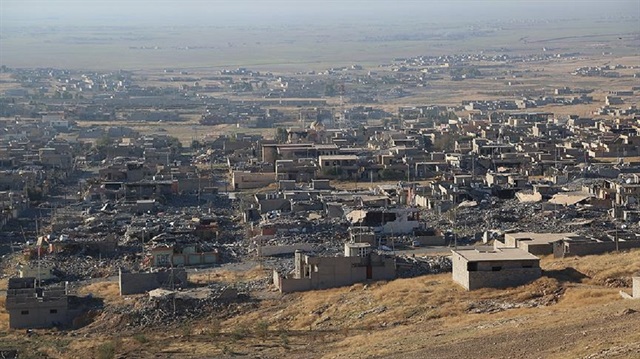

Terrorist group opening schools in Iraq’s Sinjar district with view to indoctrinating local youth, acting governor says
Residents of Iraq's Sinjar district east of Mosul are unhappy with the opening of schools in the area by the PKK terrorist organization -- schools they say are meant to politically indoctrinate Ezidi children -- Sinjar's acting governor said Monday.
Local residents are unhappy about the presence of armed PKK elements in the area and resent the opening of PKK-run schools in Sinjar, Mahma Khalil, Sinjar's acting governor, told Anadolu Agency.
"The PKK is opening these schools with a view to raising a loyal militia from among young local residents," he asserted, noting that the opening of schools in Sinjar by any party other than the Iraqi government or the Kurdish Regional Government was "illegal".
"We can't turn a blind eye to attempts by the PKK to destroy the future of our children through these schools," Khalil said.
"We call on the families of these children not to send their children to these schools," he added.
The acting governor went on to say that sending local children to such schools -- in which, he said, they were being subject to "political indoctrination" -- constituted a violation of their human rights.
Hussein Khader, Sinjar's director of education, for his part, agreed that schools recently opened in the area by the PKK "violated the law" as they never obtained licenses to operate from the central government in Baghdad.
Since 2014, the PKK has maintained a presence in Sinjar on the pretext of fighting the Daesh terrorist group.
In mid-2014, Daesh captured Mosul in Iraq's northern Nineveh province (in which Sinjar is located), along with vast swathes of territory in the country's northern and western regions.
In November of the following year, Peshmerga forces -- backed by Ezidi volunteers -- managed to retake the district from Daesh.
The Ezidis are a religious minority, most of whose members live near Mosul and Iraq's Sinjar Mountains region.
Smaller Ezidi communities can also be found in Turkey, Syria, Iran, Georgia and Armenia.
#Ezidi
#Iraq
#Mosul
#PKK
#Sinjar

